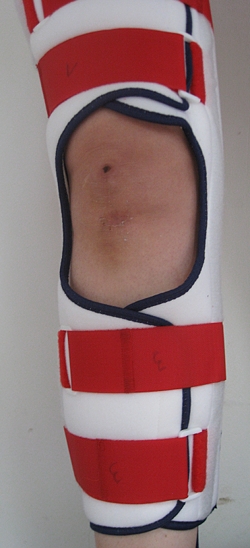about competition
Tuesday, March 2nd, 2010
A reader called Silvia Hossfehler asked about a statement I made in a blog post, in which I described a design of a chair that I had subbmitted to a competition. My statement there was “I do not like competitions.” And Silvia Hossfehlers question was:
Are you sure that you do not like competitions? So why did you then send in your suggestion?
Since I think this is a more general issue, I decided to make a blog post out of this.
There are three major aspects of a competition. One is filtering, one is evaluation and one is motivation. A competition is filtering since it is making a choice between the objects/subjects under competition. A competition is evaluating since this choice is usually done with respect to some “value scale” that is for example in the olympic games the value could be e.g. “high velocity” and the filtering is thus to filter out the fastest. However in an art competition for example the “value scale” is not so obvious, people may talk about “quality”, as a possible value, but usually in an art competition, the filtering is mostly subject to a quite unspecifyable/predictable “value scale”. The third aspect is that a competition may serve as fostering motivation, it may make people increase their commitment to a certain task. That is for example the runner in the olympic games may be running faster and giving his/her best due to the “competition”.
Likewise in the working world a competition may filter out “the most efficient/capable”, moreover usually competition is regarded as a necessary condition for motivating people to work hard enough. Efficiency and a motivated workforce is usually essential to make profits and since competition solves all these demands all at once it therefore is a kind of “must-have” for “capitalists”. Often enough the principles of evolution (“survival of the fittest”) are taken as a justification of these paradigmas. However it should be noted that there there are enough examples, which display that in evolution things are more complicated, in particular the “survival of the fittest” may not hold for the individual but for a group of species.
Nevertheless as a result our western society is highly “competition-oriented”.
In my point of view – especially by looking at the odd sides of competition, like for example where it is leading to things as exploitation or monoculture – this can be very problematic and I think a more critical view on competition as such may be at place.
It is of course more or less unavoidable to take part in competitions and unfortunately one has to go through quite some competitions in order to have a saying. Grades in school already constitute a “competition”. And again in this example a competition serves as an agent for “evaluation”.
On the other hand this example already makes it also clear that the above mentioned major aspects of a competition can at least partially be transferred to other means. That is an evaluation can also be done by purely measuring capabilities/competences, i.e. the competitive aspect of being compared to others can be reduced. Likewise motivation can be driven by interest, social connectivity etc. In short competition may not even be a necessary condition for efficiency. On the contrary if the competition and “optimization of efficiency” is too strong competition can be counterproductive (see e.g. the last Toyota crisis). Last but not least the “filtering” aspect of competitions may lead to a blindness for other “filtering” criteria. Thus if for example “fast profit” dominates the “value scale” for a competition other possible criteria, like social conditions etc. are going to be neglected. Moreover the conditions for filtering may be unfair/too restricted etc. (read also this randform post about competition in the academic world).
So yes my comment in the blog post was referring to all that but it was also expressing a subjective discomfort with competition, in particular for me competition is usually not the most motivating force. For example in school sports I was especially slow if I had to run with others. I do not object to evaluation, on the contrary a regular feedback is important for me, however I do not always need the comparision to others. The comparision to others may impose quite an extra stress, rather than motivation. This can go as far as this: If I notice that someone wants to challenge me for a competition I sometimes prefer to completely step back. In particular there are people who want to make everything into a competition. I find that unpleasant, since in these cases one has not only to decide about the issue in question, but also about the aspect, wether one is up for a competition.
I took part in this design competition mentioned in the blog post, because I actually would have liked to discuss my chair with others and get critics about the design etc. and eventually connect to people who might be interested in building a prototype (if you put your design just into a forum or on your blog than the response is usually not very big). So unfortunately in this competition nothing like that happened. Thats in part what I do not like about these usual competitions. Moreover there are more and more competitions, where you have to pay an entrance fee (apart from postage etc.) in order to present your work. I think this is crazy. Who is taking part in these competitions?



